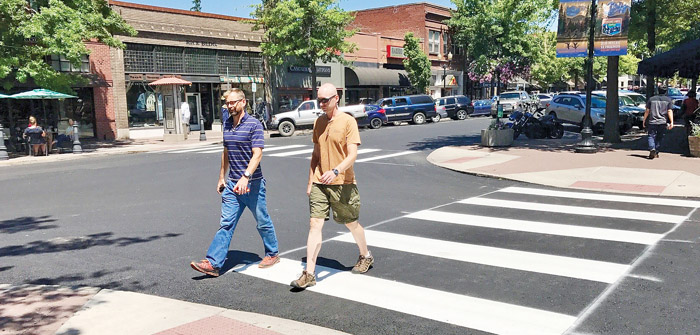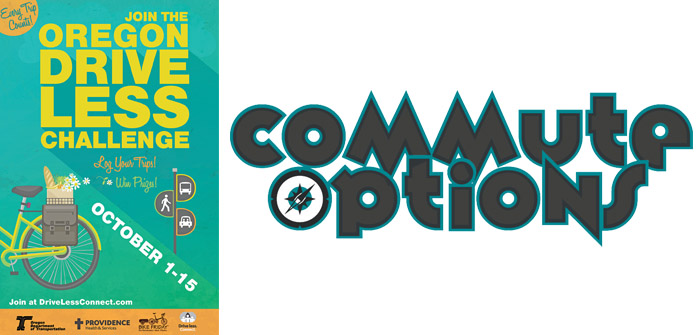Free parking is available almost everywhere we drive. We are so accustomed to having spacious parking lots at grocery stores, malls and public buildings that we rarely, if ever, think of the real cost of these parking spaces. Subsidized parking – whether from private or public sources – is a driving force for urban sprawl and the environmental repercussions from drive-alone vehicle travel associated with the modern American lifestyle.
Current zoning and development restrictions require that a minimum number of parking spaces are built to support new construction. Many ways exist to mitigate rampant use of monolithic parking lots. The Bend La Pine School District, for one, requires that high school students who drive to school purchase a $25 parking permit, good for the school year. The funds raised from student parking permits are used towards “campus monitor” salaries. Campus monitors ensure the cars are secure, monitor for parking permits and deal with discipline issues.
“We were trying to look for some creative ways to provide more safety on campus,” said Sean Corrigan, assistant principal at Mountain View High School in Bend. The parking permits are a way to fund these efforts. Large employers who own the lots where their employees park might also follow the pay-to-park model, using funds collected for community enhancements like greenways, security, lighting, bicycle and walking facilities and more. And charging for parking spaces would, by default, limit drive-alone vehicle trips resulting in fewer emissions, less congestion and savings at the gas pump.
In places where parking lots are not free – as is the case in most metropolitan city centers – commuters find other ways to get to work. “If businesses that own their parking lots charged employees for parking, it would encourage more use of carpools, transit and walking and biking to work,” said Jeff Monson, executive director of Commute Options. “Opening up employee parking spaces also frees up parking spots for customers,” he said.
Donald C. Stroup, a professor of Urban Planning at the University of California, Los Angeles has studied the issues of free parking in-depth, which he describes in his book, The High Cost of Free Parking. Stroup argues that allocated parking required by law results in overusing land for cars. The ongoing creation of abundant free parking simply feeds into our perceived need of it.
In the case of new development, consider what else these large expanses of pavement could be used for. Higher density building that provides services like shops, restaurants and medical offices within walking distance reduces the need for people to drive to work so that they can access their vehicle for other purposes during the work day.
“It’s okay to have a parking crunch,” said Monson. “People walking and on bikes have been shown to spend more in downtown areas than people who drive there,” he said, referring to a 2011 study conducted by Portland State University researchers. The study’s finding was contrary to what most business owners believe; it was shown that while people who drove to the bars, convenience stores and restaurants used in the survey spent more per visit, bike riders who visited more often spent more overall throughout the study period.
When it comes to encouraging shoppers to use transportation alternatives, Corrigan said, “I think we need to try to find other ways to provide incentives for folks.” Providing a discount to those using an alternate mode for traveling to a store could be one idea, said Corrigan. Some businesses in Central Oregon do already provide incentives for their employees who use commute options for getting to work. Eliminating free parking could be another viable step.
Commute Options promotes choices that reduce the impacts of driving alone. For more information about Commute Options, contact Jeff Monson, Executive Director of Commute Options at 541/330-2647 or visit www.commuteoptions.org. Annissa Anderson is a freelance writer and PR consultant in Bend.




